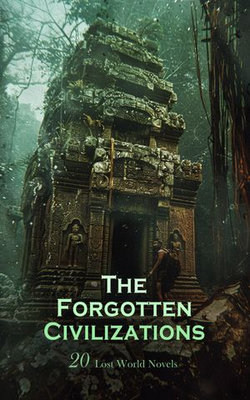The Forgotten Civilizations: 20 Lost World Novels is a remarkable anthology that transports readers into the enigmatic realms of undiscovered lands and ancient mysteries. Spanning a wide range of literary styles—from the Gothic eeriness of Lovecraftian horror to the pioneering fervor of Verne's science fiction—this collection encapsulates the allure of the unknown. Works within the anthology draw on a universal curiosity about untouched civilizations, blending adventure, speculative fiction, and occasionally, elements of satire and romance. Each story, whether it chronicles subterranean societies or lost continents, contributes to a rich mosaic of narratives that challenge and expand the boundaries of literary imagination. The thematic core of the anthology is united by an exploration of human curiosity and the inherent desire to uncover what lies beyond the familiar compass of the known world. The contributing authors, comprising a who's who of speculative and adventurous writing, bring forth narratives informed by their unique historical, cultural, and literary contexts. From the scientific romance of H.G. Wells to the grim forebodings in Poe's text, these works encapsulate the reigning sentiments of their time, while also projecting forward-reaching visions that continue to inspire. The diverse voices, ranging from the meticulously plotted adventures of Arthur Conan Doyle to the imaginative epic form of Abraham Merritt, coalesce into an enriching tapestry that underscores the theme of discovery and the quest for understanding in an ever-expanding universe. This anthology is an indispensable resource for those eager to delve into a kaleidoscope of literary explorations within a single volume. The Forgotten Civilizations offers readers the chance to traverse multiple narrative landscapes, uncovering various facets of human inquiry and creative ingenuity. It is a treasure trove of great action classics that represents the eternal human quest for adventure, exploration and discovery of the unknown.



Share This eBook: